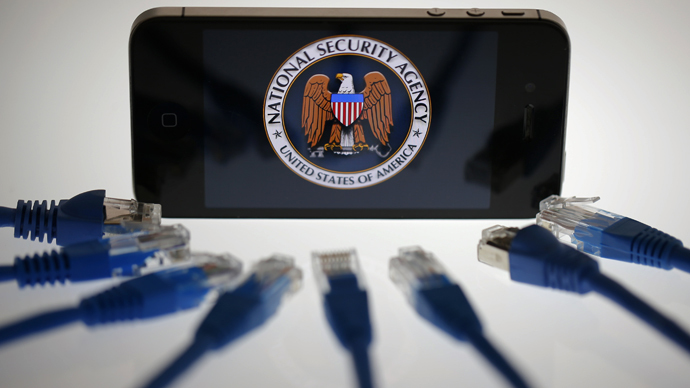US tech giants ask intel, justice agencies for greater transparency in government data requests

In response to allegations of mass online surveillance tech giants including Microsoft, Facebook and Google have all requested changes that would allow for greater transparency regarding the government's FISA requests for their user data.
As revelations of the National Security Agency’s (NSA) warrantless mass surveillance program continue to cause ripples, companies implicated in providing 'backdoor' access to their users' data have been quick to deny the charges.
According to information leaked by former NSA and Booz Allen
Hamilton employee Edward Snowden, a long list of heavyweight tech
players colludes with the NSA on its PRISM program, with
Microsoft leading the way in 2007. Other implicated companies
include Yahoo, Facebook, Apple, AOL, Facebook, Paltalk, Skype and
Google.

The tech companies were quick to deny involvement, or at least deny knowing participation in the carte blanche domestic surveillance program outlined in concurrently published stories from the Washington Post and The Guardian.
“From time to time, people allege that we have created a government 'backdoor' into our systems, but Google does not have a 'backdoor' for the government to access private user data,” said Google via statement last week.
Now, Google seems to be trying to take the lead in deflecting public ire by asking the Department of Justice and the FBI to allow it to provide users a greater level of transparency by sharing the number of times it was requested to share user information under the Foreign Intelligence Surveillance Act (FISA).
Since news of PRISM broke late last week, Google has denied
handing over user data on a mass scale, and it believes it can
make its point by disclosing in greater detail its interaction
with US intelligence services. The company has even said it was
not aware of the existence of the PRISM program until it was made
public last week.
In a letter sent to US Attorney General Eric Holder and FBI
Director Robert Mueller on Tuesday, Google asked the Obama
administration to allow it to share more information.
"Google's numbers would clearly show that our compliance with these requests falls far short of the claims being made," says David Drummond, Google's chief legal officer, in his letter to Holder and Mueller.
"Google has nothing to hide," adds Drummond.

Under federal law, companies are currently prohibited from revealing information regarding FISA requests.
In addition to Google, Facebook's general counsel Ted Ullyot joined the call for greater transparency on Tuesday.
"We would welcome the opportunity to provide a transparency report that allows us to share with those who use Facebook around the world a complete picture of the government requests we receive, and how we respond," said Ullyot in a statement.
"We urge the United States government to help make that possible by allowing companies to include information about the size and scope of national security requests we receive, and look forward to publishing a report that includes that information."
Both government officials and the implicated companies have downplayed PRISM's magnitude, though at the same time acknowledging its existence.
For their part, government officials maintain that all such surveillance is legal under FISA and the auspices of the various government agencies' counterterrorism efforts.
James Clapper, the director of national intelligence for the Obama administration, has confirmed that PRISM had been approved by one of the secret courts that administer the FISA.
During testimony before the Senate on March 12, Clapper was asked flatly by Senator Ron Wyden whether the NSA collected “any type of data at all on millions or hundreds of millions of Americans?” to which the DNI director replied “No, sir.”















